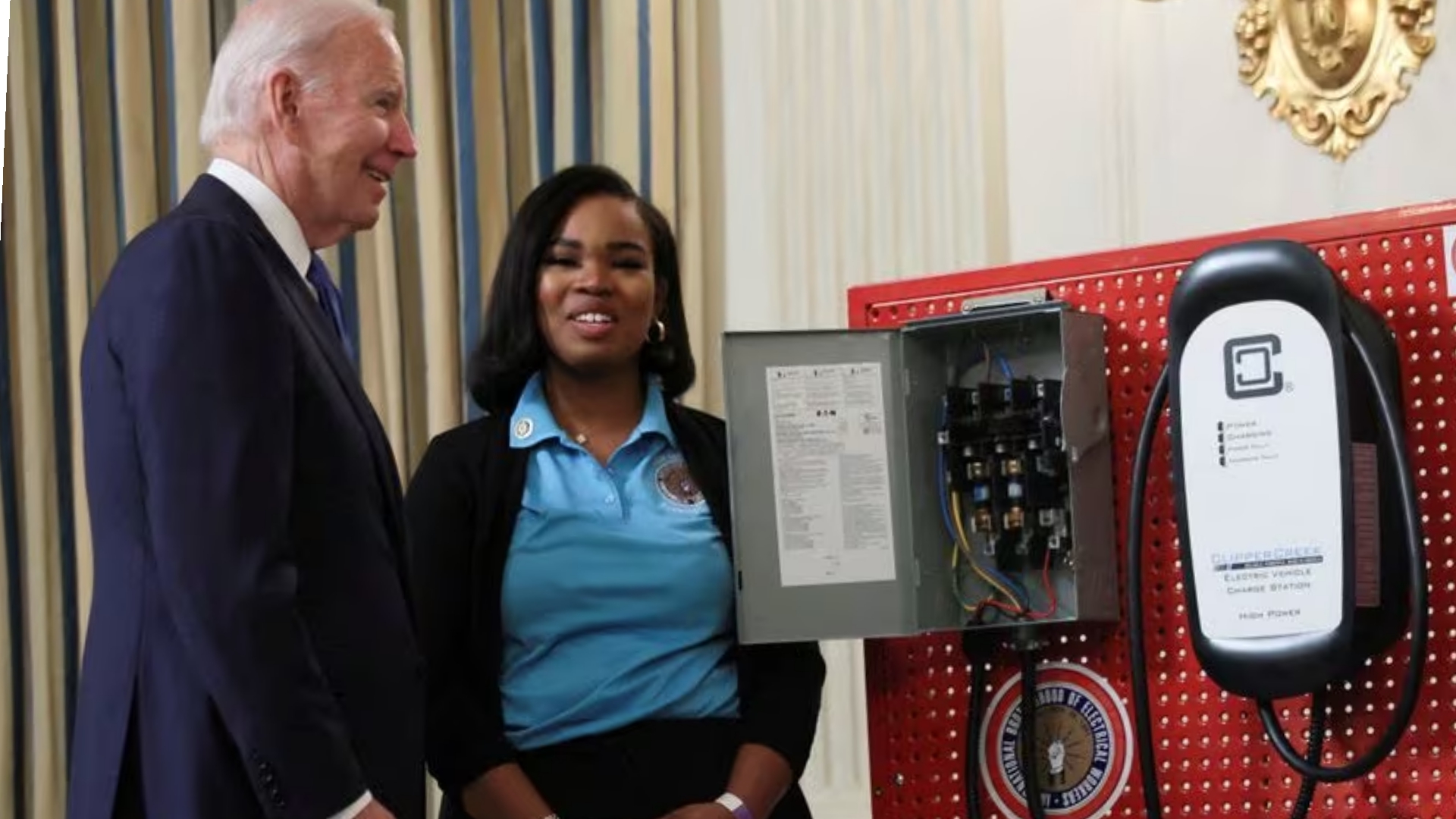WASHINGTON, (Reuters) – U.S. President Joe Biden on Wednesday vetoed legislation aimed at reversing his administration’s waiver of “Buy America” requirements for government-funded electric vehicle (EV) charging stations, according to a senior U.S. official.
Lawmakers narrowly passed a bill that would block the Federal Highway Administration’s waiver of U.S. content requirements for steel, iron and construction materials. Opponents of the administration’s policy said it would result in U.S. taxpayers subsidizing Chinese-made products.
The White House argued the Republican bill would eliminate entirely the domestic manufacturing requirement for government-funded electric vehicle (EV) chargers and harm domestic manufacturing.
“This resolution would harm my Administration’s efforts to encourage investment in critical industries and bring high-quality jobs back to the United States,” Biden said in a veto statement, adding it would “delay the significant progress being made by my Administration and the States in establishing the EV charging network.”
The Senate is expected to vote to try to overrule Biden’s veto in the coming week but it would need a two-thirds majority, a high hurdle.
The Biden administration said short-term waivers would allow for EV charger installation to proceed quickly. Congress has set aside $7.5 billion to fund electric vehicle charging stations.
Under the 2021 bipartisan infrastructure law, federal infrastructure projects like EV chargers must obtain at least 55% of construction materials, including iron and steel, from domestic sources and be totally manufactured in the U.S.
The rules adopted in February do not start imposing the 55% requirement until July. The chargers must be assembled at a U.S. factory.
EV chargers require iron and steel for some of their most crucial parts, including the internal structural frame, heating and cooling fans and the power transformer. Chargers with cabinets that house the product require even more steel, making up to 50% of the total cost of the chargers in some cases.
U.S. states and companies had warned that global demand for EV chargers is straining the supply chain, making it difficult, if not impossible, to meet made-in-America standards and expedite construction of new chargers.
The veto came the same day Biden’s 2024 re-election campaign won the endorsement of the United Auto Workers, a politically influential union that has sought the administration’s protection amid the transition to electric vehicles.
Reporting by Trevor Hunnicutt; additional reporting by David Shepardson Editing by Marguerita Choy











